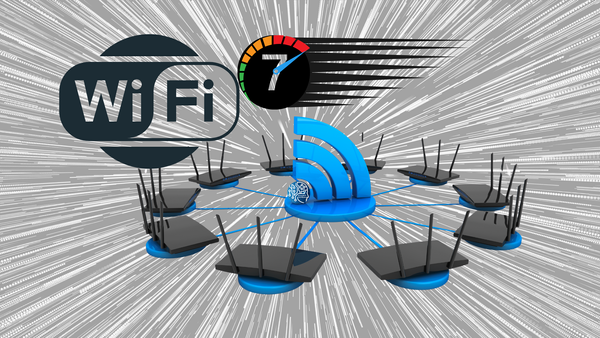What happens to our Digital Life After Death?

Yes, I know this may be a bit of a morbid subject matter, considering the holidays are literally just a few days away but, I recently had a "things that make you say hmm" moment regarding the extent of what happens to our digital lives after we pass. What becomes of this blog post? What becomes of my social media accounts, pictures, messages, files and other digital memories? Are they lost forever by someone pressing "Delete"?
As I death-scrolled social media last evening, I came across an article I had not seen for a few years which triggered the hamster to go into overdrive, on his wheel in my head, and of course, continued on well into the initial few hours or so of me trying to fall asleep. Seeing the post suddenly triggered a whole range of emotions that quite frankly, hadn't occurred to me when I initially saw it. Maybe because I was simply distracted or maybe because life events since my initial viewing of it had changed due to me experiencing deaths in the family. Whatever the reason in why it caused me to hyper-analyse my morbid future (and still hasn't left my head), it definitely made me realize that some further proper planning needs to be implemented surrounding the end of my life's chapter, and beyond.
Experiencing A Journey's End
A few years ago, I lost both my adoptive parents within just a few months of each other. They had both made it into their early 90's but, the cards they had been dealt for their closing life events were not kind to them, as they both succumbed to several health issues and dementia. While my mother had never taken to technology (and outright refused to do so), other than learning how to use a remote control to change the channels on the new TV, my father was quite amazed by the advancement and true possibilities that modern technology brought. Introducing him to a computer, smartphone and tablet (and a whole world of frustration that comes with it - for me and him 😉), really flabbergasted (as he would say) him and took quite a shine to wanting to learn more.
With their passing just a few years ago, I was faced with having to deal with their belongings, finances, Wills etc. along with everything on my fathers computer. As it happens, I already had all of his passwords and full access to everything as I had been taking care of things for him for some time. But, being the tech person that I am, I had ensured to create an administrative account on all his devices so, in the event of an emergency or technical problem, I could access everything without needing his codes. Thankfully he wasn't into social media or anything too extensive so it was a fairly straight forward and simple task. However, how many people on the norm think to do this who are not so tech savvy?

I was able to archive all of his digital pictures ( he had apparently become a novice photographer), as well as, all his financial documents, important emails , taxes and life time records of his medicines, extended family correspondences, written poetry, voice notes and other personal documentation... everything over the 15 years or so of having his computer. And, I was very happy to see and review some of his works and pictures, all of which, I keep and peruse when I am missing him. If your loved one passed suddenly, would you be able to have access to all of these cherished pictures and memories?
Well, that question brings me back to the purpose of this post. The article and video segment that I had seen was done by Joanna Stern, the senior personal technology columnist at The Wall Street Journal, just a few years ago in 2020. I have followed her from back in the day when she was the technology reviewer for the technology news websites, Engadget and The Verge. Her documentary, “e-Ternal: A Tech Quest to Live Forever” ( watch the 20min video below) won the 2021 Emmy in the category of outstanding science, technology or environmental coverage. It had come out at a very relevant time as it was just after the height of the COVID-19 pandemic. The question she was exploring was: "What happens when we die - digitally that is?
In an age where our lives are so heavily intertwined with technology, the question of what happens to our digital identities after we pass away is becoming imperative to ask. With platforms like Facebook, Instagram, and a myriad of email services storing memories, conversations, and vital data, it’s essential to understand the implications of our digital legacies. While my father's generation didn't really have to be concerned with this question to any real degree, my generation, and even more importantly, the ones following Gen-X, should really be looking at answering it carefully and coming up with a plan to pass these digital memories on, and to ensure their oved ones have the proper access to obtain them.
The Concept of Digital Afterlife
The term "digital afterlife" refers to the persistent existence of our online accounts and data even after we have passed away. In the digital realm, our profiles often carry an array of personal photographs, messages, and connections, making them significant repositories of our lives.
As more people establish their identities online, the notion of a digital legacy becomes ever more crucial. Whether it's a Facebook account filled with family photos or an Instagram profile brimming with travel adventures, these digital outcomes show who we were and what we valued during our time alive. It's our fingerprint.

And it's not just about the sentimental value; our digital footprint can also impact our loved ones, who may find themselves navigating a complex and frustrating world of managing accounts and memories left behind.
Social Media Accounts: What Happens When You're Gone?
Social media platforms have developed various policies to handle accounts of deceased users. Some platforms automatically memorialize accounts upon receiving notification of a user’s death. For instance, Facebook allows a designated legacy contact to manage the account, preserving memories while preventing unauthorized access. This feature aims at allowing friends and family to share memories and celebrate the user’s life while maintaining the community aspect surrounding the deceased.
On the other hand, Instagram will “memorialize” your account, turning it into a space where followers can still view your posts but cannot log in or change the content. Followers can also continue to comment on your past posts, creating an ongoing, digital connection.
That being said, navigating these policies becomes more complicated with the lack of clear guidelines - everything these days seems to be surrounded by fine print. Many families don’t know how to proceed, leading to lost memories and unresolved digital legacies.
Email Accounts: Digital Ghosts in the Cloud
Email accounts often represent a different challenge. Services like Gmail and Yahoo have their own policies regarding deceased users’ accounts. Typically, these providers will not grant access to your email account after death unless specific authorization is provided, such as a court order.
In some cases, loved ones can request access through the appropriate legal channels, but this process can vary significantly. This can leave families feeling stranded, unable to access crucial information, such as final emails, subscriptions, and other digital correspondence tied to the deceased.
Additionally, consider the emotional angle: what happens if your loved ones find old emails from you that were never sent (this was a big thing for me)? The correspondence they find can spark memories and emotions that don’t have closures. Access to these accounts could either provide solace or add to the grief depending on the content within.

Making a Plan: Digital Legacy and Will Planning
To ensure your online accounts are managed according to your wishes, planning ahead is essential. Don't put it off - there is no real notice in advance of your demise in many circumstances.
Here are some steps to consider when thinking about your digital afterlife:
- Create a Digital Will: Just as you would prepare a traditional will, outline what you want to happen to your online accounts.
- Choose Legacy Contacts: Many social media platforms allow you to assign someone as your legacy contact. Ensure they are aware of their responsibilities and willing to handle your digital presence.
- List Your Accounts: Keep a comprehensive list of all your online accounts—social media, email, services—along with any necessary login information in a secure but accessible place.
- Inform Loved Ones: Share your plans with your family or close friends so they know your wishes and can follow through when the time comes.
- Review Privacy Settings: Regularly assess and manage your privacy settings on your accounts. This preemptive measure helps protect your personal information while you're alive and sets the stage for what happens after.
By taking these proactive steps, you can gain peace of mind knowing your digital presence will be handled as you wish, creating an easier transition for those you leave behind.
Emotional Impact on Survivors
When we think about our digital afterlife, it's also important to consider the emotional toll on surviving family members. Grieving is already an arduous process, and dealing with a deceased person’s digital presence can complicate things further, especially if there has been no real plan for it. As a comparison, due to my fathers dementia, he had convinced himself, and his family, that all was taken care of in their "end of life planning". Sadly, there was no such plan. No signed Will and Testament, no such planning for "in the event of", and no hand-off of important information. Trust me, you do not want to experience such frustration while you are grieving.

On one hand, the memories captured in social media posts can serve as a comforting reminder of happier times, providing a sense of connection and closure. On the other hand, account management or unplanned messages can lead to unexpected grief or discomfort.
Far fewer are the days left where we create physical photo albums or store hand written love letters in a shoebox. In fact, I think those days may be already gone. At least then, having these physical memory capsules, we could pull them out from our tucked away spots under the bed, in the attic or from grandpa's old chest - only when we were emotionally ready to do so.
These days, the nature of social media, being immediate, often means that loved ones may encounter reminders of the deceased without warning. Whether it’s a birthday post notification or a memory resurfacing, these digital nudges can become sources of bittersweet reflection.
Understanding your wishes can help your loved ones cope with your digital presence after you're gone. Communication is key—talking about these subjects can be uncomfortable, but it's essential for helping your family process this inevitable reality. I tried, so many times, I tried to force this discussion as my parents aged, and yet, they were never truly ready to do so. It was never the right time. Is there a right time?
Yes... it's now.
My FinalThoughts
As technology evolves, so does our digital lives after death. From social media accounts to email services, it's clear that our digital identities continue to exist, influencing how we are remembered and how our loved ones process their grief.
While I really don't think I would want myself as an animated AI Robot for my loved ones to interact with (in fact I think it's kind of creepy), as we saw in Joanna's documentary, I do get why some would find this helpful. All of us have different ways of coping and maybe, that's what some of us need.
My immediate thought when seeing the robot in the documentary (other than "oh hell no!") - was the 1993 movie, My Life , with Michael Keaton and Nicole Kidman. That's the answer! Videotape myself telling stories, doing daily things, sharing memories, sharing emotions and sharing the love I have for life. That's what I want to do. However, after now really dating myself, I suppose finding a video recorder that takes videotape, would not be the appropriate device. How would my children or grandchildren play it? Hold the film up to the light and pull really quickly? LOL

Seriously though, digitally recording everything would be a truly amazing legacy, or imprint, I think would be the better word, to leave behind. The Chatbot concept really makes so much sense. Record, transcribe, program it into the Chatbot and voila, there I am, with my real voice, ready to talk and share with you even after I am long gone.
Yet another, rather worrisome, thought I had was... what is my current digital fingerprint? Is there enough meaningful content currently or is it just silly meme's, sarcastic comments, reposts of people falling down, stupid eating challenges and crazy pet pictures? Oh man, further family generations are going to label me as the crazy one! Or, on the flipside, does this reflect my sense of humour, the lighter, joyful and silly side of me - things that truly make up who I am?
As I lay in bed last evening, considering what imprint I would leave behind, I remembered I had written a blog post, back in 2019, regarding QR codes and some of the ridiculous uses of them. Sure enough, I had talked about "Living Headstones" - Paying to have a QR code on a headstone that, when scanned, would pull up all kinds of digital information about the deceased. I thought it was ridiculous - until now. Just a few years later, it now makes sense to me. And really, it may very well be the proper route to go (though I don't plan on having a headstone so I will have to figure out a prime spot). The person(s) visiting me could instantly get my digital imprint of everything I have stored digitally for them. In today's world, it actually makes a whole lot of sense. Most assuredly, I have a lot more thinking to do, and a lot more planning.
By planning ahead and establishing a digital will and legacy (or imprint), contacts can alleviate the emotional burden on those left behind. As we embrace the joys of digital life, we must also acknowledge the lasting impacts it has on our future - beyond life.
In a world where we are constantly connected through screens, bits and bytes, and virtual reality, it's vital to consider how we want that connection to continue—or fade—once we’re no longer here. One thing is for certain however, taking proactive measures will not only safeguard your digital legacy but also enhance the clarity for your survivors, allowing them to celebrate your life and remember the stories held within each digital frame.
Let me know in the comments if you have planned out your digital afterlife and if so, what unique methods did you come up with? Or, if you haven't started a plan yet, what are your thoughts about it? Is it something you would consider?





